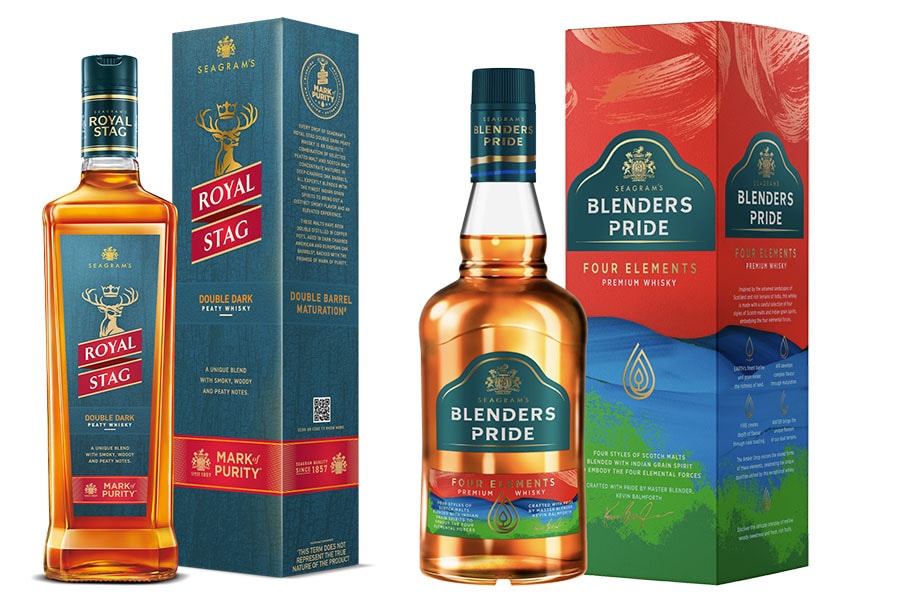
Royal Stag and Blenders Pride form the bedrock of Pernod Ricard India's success: Kartik Mohindra
Pernod Ricard India launched new versions of Royal Stag and Blenders Pride on August 20. Its CMO talks about the new spirits, the company's innovation strategy, its vision for India and more
 Royal Stag Double Dark Peaty whiskey and Blenders Pride Four Elements Premium whiskey launched today. Image: Courtesy Pernod Ricard India
Royal Stag Double Dark Peaty whiskey and Blenders Pride Four Elements Premium whiskey launched today. Image: Courtesy Pernod Ricard India
Pernod Ricard India has introduced new versions of two of its popular whiskies: Royal Stag Double Dark Peaty whiskey and Blenders Pride Four Elements Premium whiskey. The launch follows the successful debut of Longitude 77, its first Indian single malt in Dubai. These new releases are part of the company's strategy to reinforce its foothold in the rapidly growing premium whiskey market in India, responding to changing consumer preferences.
Blenders Pride Four Elements features a blend of four Scotch malts and Indian grain spirits. Royal Stag Double Dark Peaty whiskey, on the other hand, offers a smoky blend, a first in its category, using double-distilled Scotch malts aged in charred American and European oak barrels, mixed with peated malt and grain spirits.
The whiskies will be rolled out in stages: Royal Stag Double Dark will first be launched in Maharashtra, Assam, Haryana, and Uttar Pradesh (UP), while Blenders Pride Four Elements will be introduced in UP, Haryana, Odisha, Telangana, and Goa. Both are expected to complete their nationwide rollouts by December.
In conversation with Forbes India, Kartik Mohindra, chief marketing officer and head of global business development at Pernod Ricard India, sheds light on the company’s innovation strategy, its vision for India, and more. Edited excerpts:
Q. What inspired the latest creations for these specific brands after more than a decade?



















